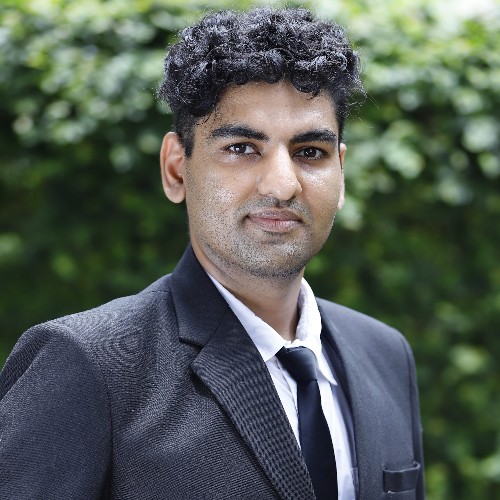ULIP interns get ample support and attention from everyone in the organization and it is best to use it to one's advantage to deliver a quality project. And do not forget to make lifetime connections with fellow interns and people at the organization!
Q. Could you share some work from home (WFH) best practices based on your 2020 internship
Meghna: One difficulty that you may face in a WFH internship, is reaching out to and getting time from people. In case the person does not respond the first time you reach out, don’t take it personally. Write to them again and explain why you need their help, and in most cases they will get back to you. Though you wouldn’t want to deluge someone with calls/mails, know that you have a fixed timeframe within which your project needs to be done. Ask your mentor/buddy about the core working hours of the organisation, so that you are aware of the best time to reach out to someone.
Animesh: One of the best practices that is very helpful when communicating with a diverse group of individuals across the organisation in a short span of time is crisp, comprehensive and intelligible documentation. At times it can be difficult to get a time slot for a video or voice call with employees from the organisation because of their busy schedules. In such instances, it always helps to properly document your work, ideas, queries, references, etc. and share it with them. This way the other person can review the document when time permits and revert with valuable feedback. Complimenting verbal communication with documented work also ensures that you are on the same page as all the stakeholders.
Harshita: For me I wanted to have an immersive experience despite the internship being WFH and while wanting to do that I ended up creating a habit. I would make sure to attend most of the leader-led talks that were organized. Some of the talks were specifically for the ULIP interns while other ones were for the whole organization. Through those talks I gained a lot of understanding of the business as well as the HR function. Apart from the knowledge, I had to have a feeling of belongingness to the bigger organization through those talks.
Q. Can you share some highlights from your virtual internship apart from the project?
Meghna: One of the best parts of the WFH culture was the weekly connects that happened with the CEO, Alan Jope. Employees from all over the world would tune in for an hour to get updates on business. Each week Alan, along with a member of the Unilever Leadership Executive (ULE) would take questions on various topics from the employees, from company performance to maintaining mental health and promotions. It was great to see the leaders maintain constant and open communication with the employees.
Harshita: Interactions with other interns was made interesting as the employer branding team had organized hackathons, and other challenges for us during the course of the internship. In the hackathons we were given a challenge related to a function and the team with the best idea would be rewarded! To wrap it up, HUL held a virtual party which turned out to be a fun and unique experience.
Q. What is one personal learning you would like to share?
Animesh: The importance of striking a balance between developing a focussed expertise on your area of work and assimilating information about different functions and overall business itself to understand the process of value generation through everyone’s work. It really helps to take a step back, see the big picture, re-evaluate and develop the ability to critique your own ideas and work.
About the authors:
Animesh Singh Kumawat, Harshita Nandigam, and Meghna Sathesh are 2nd year MBA students of Human Resource Management and Labour Relations at TISS, Mumbai.












Comments